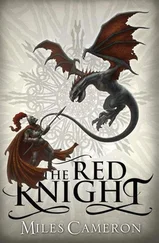The job at hand acutely reminded him of his true purpose; he was a covert operative. Doggedly, he performed this duty. It was the skullduggery part of his assignment.
Today it was the trash of a Kuwait naval captain—Captain Rezaee Mohsen. Captain Mohsen was the emir’s top man in the Kuwait navy. The emir’s navy itself was nothing more than a humorous footnote by superpower standards. It consisted mostly of heavily armed fishing boats and a few helicopters. Still, Mohsen took great pride in it, and he ran a tight ship. As for the man, he often fooled himself about the navy’s importance, as did other military officials in the tiny country.
George swallowed hard against the bile rising in his throat. It looked like the usual household trash, including the nauseating smell. Rarely did anything of great importance come of this task, yet occasionally there were some interesting morsels. After a bit more combing, he removed a slightly soiled piece of stationery. First, he noticed that it was a poorly worded letter addressed to Mohsen’s chief of staff. A simple inquiry about the captain’s diet and preferences in eating habits was all it asked. Not an unusual note from a host to a staff member when the captain traveled on a diplomatic mission. George’s office was always informed of these travels. The palace liked the attention when one of its ambassadors went to meet with other heads of state. Any chance for a little pomp and circumstance was good PR for the population.
He knew that his office had not been notified of this impending trip, and he made a mental note to check it in the morning. He was ready to discard the slip when his eye caught the name at the very bottom: Andri Stemovich.
Since the Cold War had ended, the Russian government had always found itself cash poor. To raise capital, it often conducted weapons sales when oil and gas revenues wouldn’t suffice. It wasn’t only the small arms; it was getting into the larger hardware. Fighter planes, tanks, and ships were all up for auction. As for the Middle East, any country that had relations with the Russians—or any Russian—had to be monitored. That was rule number one for all agents.
He slipped the note in his pocket and began to clean up the mess. George kept telling himself not to be preoccupied about the scribble. It wasn’t his job to analyze. He had found letters similar to this before, and nothing came of them. This was different though— nagging . He always knew about military personnel movements in and out of the country. Bulletins about meetings with other foreign dignitaries regularly went over his desk.
Don’t kid yourself, George. It’s not your job to know everything.
The letter would travel to Virginia in three days. Courier, not electronic media, was the best method to maintain secrecy. There it could be scrutinized effectively and fully. He finished cleaning up the mess and went over to his calendar. After thirty-three years of service, he was three months away from going home and living as an American again. He dreamed of the World Series in October and football games on a chilly November day. He wanted to kick his feet up and eat a hot dog and drink a beer. God! A beer! The note he had just come across was the last thing he wanted to see.
CHAPTER ONE

Trash, Treasure, Trouble
Levi Carp, a crippled geriatric (seventy-two, to be exact), limped down the halls of the CIA slower this time of year. The weather was getting hot and muggy, and the air-conditioning rarely worked well no matter how much money the government threw at it. The heat irritated his plastic knee, making his pain a constant reminder of his dark past.
One of the few CIA black ops officials involved in the Bay of Pigs debacle, Levi had the misfortune of being an observer on the Cuban beaches when Castro quashed the half-hearted, American-backed attack in 1961. As things worsened, and no air force planes arrived for cover, Levi had the smarts to inflate a dinghy and paddle out to sea before being captured with the others. His hasty escape was successful, but it was not before he took a bullet in the kneecap. He was rescued by the coast guard after two days of bobbing in the ocean.
He never forgave Kennedy for that. It would be three years and ten operations before he could reasonably walk. At the ripe age of twenty-three, Levi was relegated to a desk. His bitterness festered there.
After the Bay of Pigs, the CIA, which had been established only in 1947, was almost disbanded, and Levi did everything in his power from his chair to make sure that would not be the case. He excelled in the cover-up game. He was rarely seen at public functions, and the word was that he had deep ties to America’s military-industrial complex. He saw ruthlessness as a tool to be applied liberally. He was the ugly element of intelligence gathering—a role necessary for the protection of America, and one in which he delighted every day.
Small talk annoyed him, and these last decades had been most nerve-racking. Technology wasn’t the sole friend of the CIA anymore. It was everyone’s friend, and the potential for exposure grew.
Levi lived black ops, and now he did the decision-making. In the company, it was well known that he had conducted most of the genuinely nefarious tasks. The joke behind his back was that if you opened a dictionary and looked up the word assassin , you’d be greeted by a picture of Levi. He oversaw covert missions that were suspicious in their origins and objectives. His one standing witticism to himself was: “In order for any deception to work, there had to be blood spilled.” For him, the jest was more practice than preaching. He worked with great autonomy, but even his orders weren’t absolute. He did answer to someone. Other Western countries feared him, and he liked that. If his friends feared him, then he must terrify his enemies—or so he thought.
His constant companion was his cane. Like Levi, it had seen better days. It was crowned with a jackal’s head, lacquered black, and always sported a shine. It moaned in haunting objection whenever he leaned on it.
His secretary, Judy, was the only one he couldn’t intimidate. He shuffled through the door to find her on the computer.
Judy didn’t look up. “Mr. Archer is here to see you.”
Dan Archer sat in the corner. He towered at six foot four when he lofted his frame to an upright position. He was reasonably handsome, but somewhat frail. His voice was deep, soft, and disarming. Though not harboring the best fashion sense, he did mingle well in any crowd. He was admired for his quick thinking and problem solving. Mostly an easygoing type, Dan did have his moments of stubbornness. He didn’t play office politics well, and it made for some uneasy relationships. The one he had with Levi was a classic example. Dan was relaxed until Levi’s eyes fixed on him.
“Come on in, Dan. I have a few minutes this morning.” Levi extended his cane and pointed it at his office door.
The office was dark and bare. The lights held dim bulbs to shroud Levi in the shadows when speaking to his guests. He kept the temperature at a constant sixty-five degrees for added effect.
“How are things on your side?” Levi asked.
“We’ve run across something a little strange. I wanted to make sure that it wasn’t anything in your wheelhouse before we began checking it out.” Dan presented the note George had found in the trash in Kuwait.
Читать дальше














